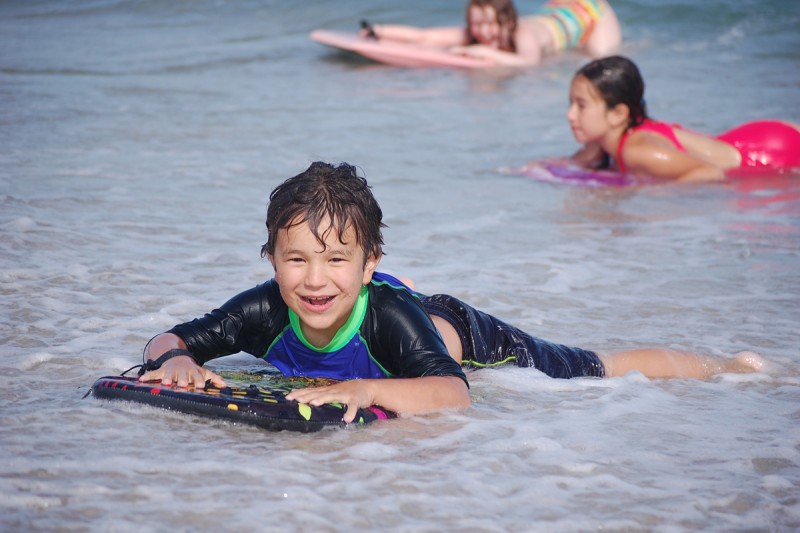
Kim Okochi’s heart sank when nurses told her that her newborn son, Finn, had low platelets and needed a blood transfusion. Kim’s older brother and two uncles had died from a rare blood disease called Wiskott-Aldrich syndrome, and Kim knew that low platelets meant that Finn had inherited the same life-threatening disorder.
Like hemophilia, Wiskott-Aldrich syndrome is a sex-linked trait that is inherited on the X chromosome and primarily affects boys. But the condition is so rare that few places can even test for it.
“We didn’t know I was even a carrier,” Kim says.
Fortunately, by the time Finn was born, advances in medicine had made it possible for patients with this rare disorder to receive a potentially curative treatment: a bone marrow transplant from a genetically matched donor. This approach was pioneered at MSK by Richard O’Reilly , who served as Chair of MSK’s Department of Pediatrics and Chief of the Pediatric Bone Marrow Service for more than 30 years.
Finding the right donor is always a gamble, but in Finn’s case it was even trickier than usual. His mixed ethnic background (Finn’s mom is of European descent, while his dad is Japanese) meant that the odds of identifying a closely genetically matched donor were slim. But thanks to a nonprofit organization called Be The Match — which helps connect patients with unrelated donors from around the world — a suitable donor was found.
Under Dr. O’Reilly’s care, Finn had his transplant in 2006, at 14 months of age. Doctors had wanted to wait until Finn was at least 2 years old before putting him through the grueling radiation and chemotherapy treatments that precede the transplant, but his blood disorder was worsening and they couldn’t wait any longer.
“We didn’t really sleep for 48 hours beforehand,” Kim recalls.
She and her husband, Jiro, spent the days leading up to the procedure huddled on a hospital couch inside of Finn’s room. But on the day of the transplant, Kim remembers feeling relieved and optimistic: “I knew we were under excellent care with Dr. O’Reilly and the MSK team. I just felt very positive that it was going to work.”
It did. Finn is now a healthy 10-year-old whose favorite activities include playing soccer, piano, and chess. He still sports the nickname given to him by Dr. O’Reilly in honor of a famous Irish folk hero: The Mighty Finn.

